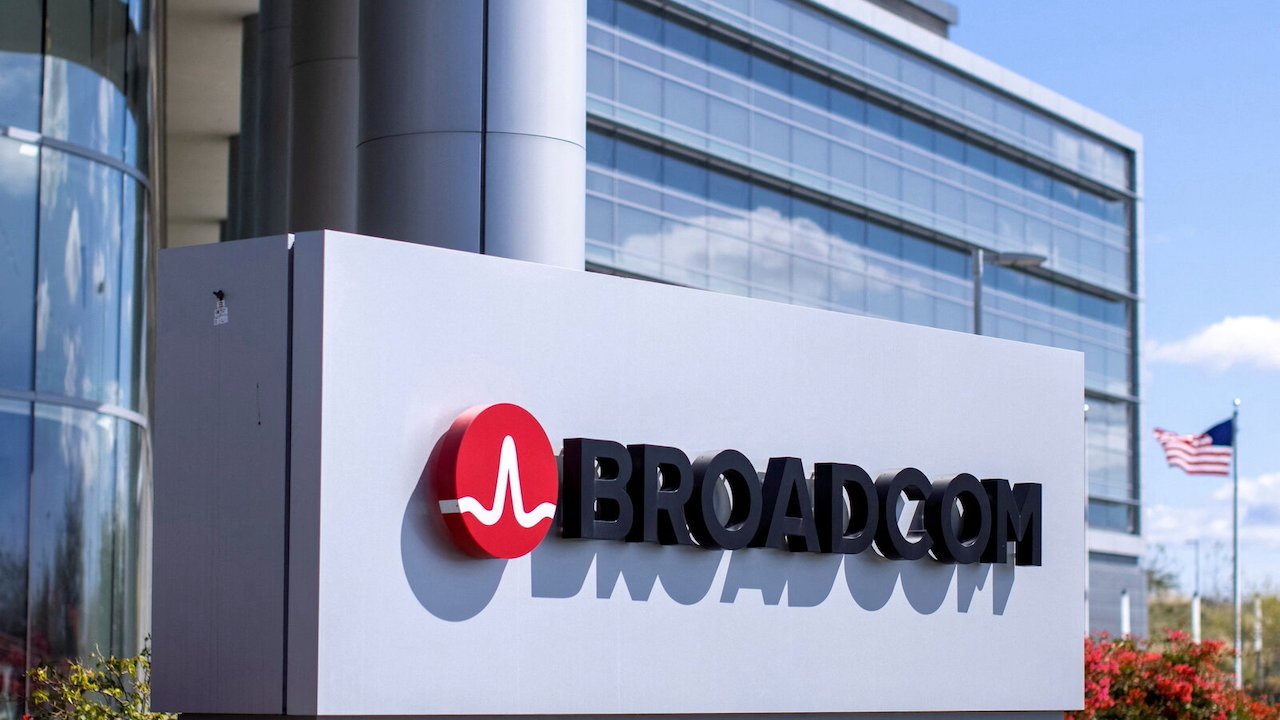Broadcom announces plan to buy VMWare in $61B deal
Broadcom is set to purchase VMWare in a cash-and-stock deal valued at around $61 billion, a move that could help the semiconductor company move into the enterprise software space.

Broadcom headquarters
The two companies announced the deal, which would be one of the largest technology acquisitions ever, on Friday. The $61 billion price tag is based on the closing price of Broadcom stock on May 25, according to CNBC.
Broadcom produces semiconductors and wireless chips for the electronics industry, and is a long-time Apple supplier. The company, for example, made Wi-Fi 6E modem chips for the iPhone 13 and iPhone 13 Pro.
Through the acquisition of VMWare, which makes products aimed at virtualization and enterprise cloud computing, Broadcom will be able to diversify away from its own core business of semiconductor design. VMWare spun off from Dell -- which bought the company in 2016 -- in late 2021 in an effort to pay off debt.
Mac users likely know the name VMWare because of the company's desktop virtualization software, which lets users create and run virtual machines with various operating systems on their computers. It isn't clear how the acquisition will affect VMWare's consumer or enterprise products.
Broadcom has a habit of acquiring companies. Back in 2018, it purchased technology firm CA Technologies for $18.9 billion. In 2019, it bought cybersecurity company Symantec for $10.7 billion.
The chipmaker attempted to acquire modem producer and Apple supplier Qualcomm in 2018 in an $117 billion deal. However, that acquisition was blocked by then-President Donald Trump, who cited national security concerns.
Broadcom's bid to acquire VMWare would be among the largest deals in the technology industry, just behind Microsoft's pending $69 billion deal to buy Activision Blizzard and Dell's $67 billion purchase of EMC in 2016, in which it also acquired VMWare.
Read on AppleInsider

Broadcom headquarters
The two companies announced the deal, which would be one of the largest technology acquisitions ever, on Friday. The $61 billion price tag is based on the closing price of Broadcom stock on May 25, according to CNBC.
Broadcom produces semiconductors and wireless chips for the electronics industry, and is a long-time Apple supplier. The company, for example, made Wi-Fi 6E modem chips for the iPhone 13 and iPhone 13 Pro.
Through the acquisition of VMWare, which makes products aimed at virtualization and enterprise cloud computing, Broadcom will be able to diversify away from its own core business of semiconductor design. VMWare spun off from Dell -- which bought the company in 2016 -- in late 2021 in an effort to pay off debt.
Mac users likely know the name VMWare because of the company's desktop virtualization software, which lets users create and run virtual machines with various operating systems on their computers. It isn't clear how the acquisition will affect VMWare's consumer or enterprise products.
Broadcom has a habit of acquiring companies. Back in 2018, it purchased technology firm CA Technologies for $18.9 billion. In 2019, it bought cybersecurity company Symantec for $10.7 billion.
The chipmaker attempted to acquire modem producer and Apple supplier Qualcomm in 2018 in an $117 billion deal. However, that acquisition was blocked by then-President Donald Trump, who cited national security concerns.
Broadcom's bid to acquire VMWare would be among the largest deals in the technology industry, just behind Microsoft's pending $69 billion deal to buy Activision Blizzard and Dell's $67 billion purchase of EMC in 2016, in which it also acquired VMWare.
Read on AppleInsider

Comments
I know fusion’s days are numbered now, especially with x86 no longer available on Macs (except Mac Pro), but as long as my iMac is working, it will still have a home.
I’ve always been a fan and frequent user of Workstation and Fusion, the latter being an incredibly useful and stable utility for Intel based Macs. Apple’s move to M1 has definitely been a stake through the heart for hosting x86 Windows VMs on new Macs. I don’t think Apple set out to cripple Fusion and the ability to run x86 Windows and Linux VMs on Mac when it abandoned Intel architecture. It’s just an unfortunate side effect of the Apple Silicon transition.
I suppose later and more powerful Apple Silicon chips could bring back x86 support, but it probably won’t matter. The market will probably have moved on to other approaches by that time. Those few folks who need an x86 Windows or Linux machine running in the same desktop context, i.e., same keyboard, video, mouse, etc., sitting in front of them will attach a second Intel computer (a NUC perhaps) and use a KVM device or equivalent capability built into their monitor and some sort of bridging utility to allow data sharing and copy & paste between physical computers. It’s kind of like what happened with disk compression software. Once the price of the hardware based storage dropped the desire to squeeze more capacity from what you already had was greatly reduced.